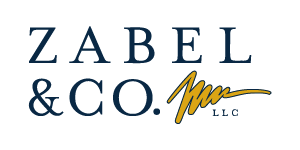When starting or operating a firm, it’s important to understand cash flow concepts and how to leverage them for your growth. Cash flow is hands-down the lifeblood of any successful firm. Without a healthy cash flow, your business will eventually die.
We’ll examine what cash flow is, why it’s so important, and how you can use it to your advantage. We’ll also provide tips on how to enhance your company’s cash flow situation. So if you’re looking for insights into one of the most important aspects of business success, keep reading.
What Is Cash Flow?
In business, cash flow is the measure of money coming in and out of the company. It’s a key indicator of financial health, and if your cash flow is negative, it means you’re spending more money than you’re bringing in. This isn’t a sustainable situation and will eventually lead to the death of your business.
There are two types of cash flow:
Operating Cash Flow
This cash comes in and out of your business from day-to-day operations. It includes sales revenue, money spent on inventory, and employee salaries.
Investment Cash Flow
This cash comes into or leaves the business from investments or other financing activities. For instance, if you take a loan to finance your business, the money you receive from the loan is considered investment cash flow.
Why Is Cash Flow So Important?
Cash flow is important because it’s a key indicator of your company’s financial health. You’ll eventually go out of business if you’re not bringing in enough cash to cover your expenses.
Additionally, cash flow is important because it can be used to finance growth. If you have positive cash flow, you can reinvest that money into the business to help it grow. For example, you can use it to buy new equipment or hire new employees.
What’s the Best Way to Gauge Inventory?
There are different ways to gauge inventory, but one of the most important is to track your inventory turnover. This will present you with an idea of how fast your stock is moving and whether you need to adjust your buying habits.
Another way to gauge inventory is to track your days sales outstanding (DSO). This metric will indicate how long your customers take to pay their invoices.
You can also use a system like Just-In-Time (JIT) inventory, which helps companies manage their inventory levels by ordering only what they need when they need it.
How Can You Improve Your Firm’s Cash Flow Situation?
There are several ways to improve your company’s cash flow situation. One way is to give discounts for early payment. This will incentivize your customers to pay their invoices sooner, which will help you bring in cash faster.
Another way to improve your company’s cash flow is to extend payment terms to your suppliers. This will give you more time to pay your bills and help you build a good relationship with your suppliers.
You can also improve your company’s cash flow by reducing inventory levels. This will free up cash that’s tied up in inventory, and it will also reduce the risk of having obsolete inventory.
Finally, you can improve your company’s cash flow by reducing operating expenses. This will free up more cash to reinvest into the business or pay down debt.
How Frequently Should You Do Product Counts and Why Is This Important?
Product counts are important because they help you gauge your inventory levels and ensure that you have the right levels of product on hand.
There are a few different ways to do product counts, but one of the most common is to do them weekly. This will paint you a clear picture of your inventory levels and help you make adjustments as needed.
Another way to do product counts is to do them every month. This will give you a more long-term view of your inventory levels and help you make strategic decisions about your inventory.
Why Is the Turnover Ratio Important?
The turnover ratio refers to how fast you sell through your inventory and is a key indicator of your company’s financial health. A high turnover ratio means your stock is moving quickly, which is good for business.
A low turnover ratio means your inventory isn’t moving as quickly, which can signify financial trouble. The turnover ratio is important because it can help you gauge your company’s financial health and adjust your business as needed.
Get Expert Help with Your Cash Flow
If you’re having trouble managing your company’s cash flow, it’s important to get expert help. Our team of professionals at Zabel & Co. can help you understand your cash flow situation and develop a plan to improve it. Let’s chat!

